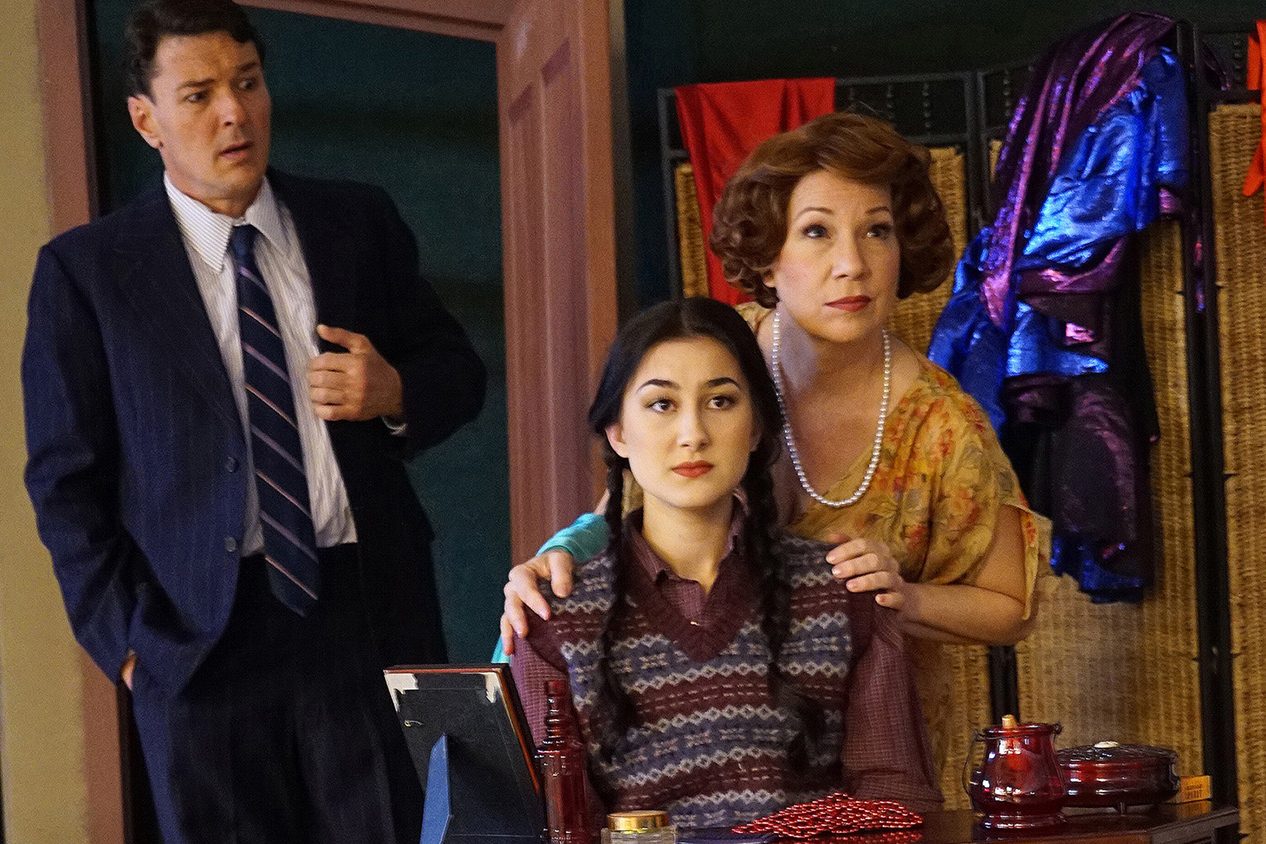The overture to Gypsy kicks off the show with one of those rousing, familiar tunes that practically bellows “classic American musical.” And a classic this is, the 1959 masterpiece by writer Arthur Laurents, composer Jule Styne, choreographer Jerome Robbins and young lyricist Stephen Sondheim (just off his breakthrough with West Side Story).
But if it’s most famous for “Everything’s Coming Up Roses,” the blooms are more like those the Rolling Stones sang about in “Dead Flowers.” Like the music, the story turns darker, more complicated and more real than its splashy opening number suggests.
Running this weekend and next at The Shedd in a production directed by Peg Major, with music direction by Robert Ashens and choreography by Caitlin Christopher, Gypsy delivers the memorable big tunes and production numbers that fans of musicals crave — while also limning the depth of character and even darkness rarely found in musical theater at that time, and too seldom since.
Set in 1920s vaudeville, the story is propelled by an aging, wannabe burlesque queen, “a pioneer woman without a frontier … born too soon and started too late.” At heart it’s a family drama pitting the manipulative stage mother’s stifled ambitions and fears against her daughters’ independence and self-esteem as she labors to vault them to the vicarious stardom she never herself achieved.
In the process, we come to understand the pain that underlies her craving for recognition.
One indicator of any classic’s greatness (whether a play, a composition or a dance) is the variety of interpretations it allows, and in frequent revivals on Broadway and beyond, Momma Rose has been successfully played by a wide variety of the greatest musical actresses.
Though all inevitably stand in the formidable shadow of the original Momma Rose, the volcanic-voiced Ethel Merman (who actually initiated the project after reading the memoirs of striptease artist Gypsy Rose Lee), the fact that stars as diverse as Angela Lansbury, Bette Midler, Tyne Daly, Rosalind Russell, Bernadette Peters and Patti LuPone have successfully played the role in frequent revivals demonstrates the character’s depth.
In a similar way, different productions vary the import of the ambiguous ending. More than most works of musical theater, including opera, Gypsy catches the complexity of real life — and conveys it in exciting, unforgettable songs like “Together Wherever We Go,” “You Gotta Get a Gimmick,” “Let Me Entertain You” and, of course, “Everything’s Coming Up Roses.”
And that complexity, signaled by an unexpected turn from opening exuberance to eventual disappointment, helped spark a similar transformation in the American musical itself, opening it to an unprecedented psychological complexity that Sondheim and others would continue to develop.
That makes Gypsy a timeless creation. In this age of American Idol, The Voice and a burlesque revival that just last year produced a new, made-in-Portland opera telling the story of Portland striptease artist/author Viva Las Vegas, maybe the time is again ripe for Rose’s demented dreams of ecdysiastic elevation.
The notion that you can cure your psychic damage and find glory — or at least self esteem — by riding the public revelation of superficial parts of yourself to stardom didn’t die with vaudeville strippers.
Featuring Shirley Andress as Rose along with Clarae Smith, Ward Fairbairn, and Kenady Conforth, Gypsy runs for six performances at The Shedd’s Jaqua Concert Hall: 7:30 pm Friday and Saturday, June 16-17 and 23-24, and 3 pm Sunday, June 18 and 25. Tickets $22- $38, available at the box office, by phone at 541-434-7000 or online at theshedd.org.
